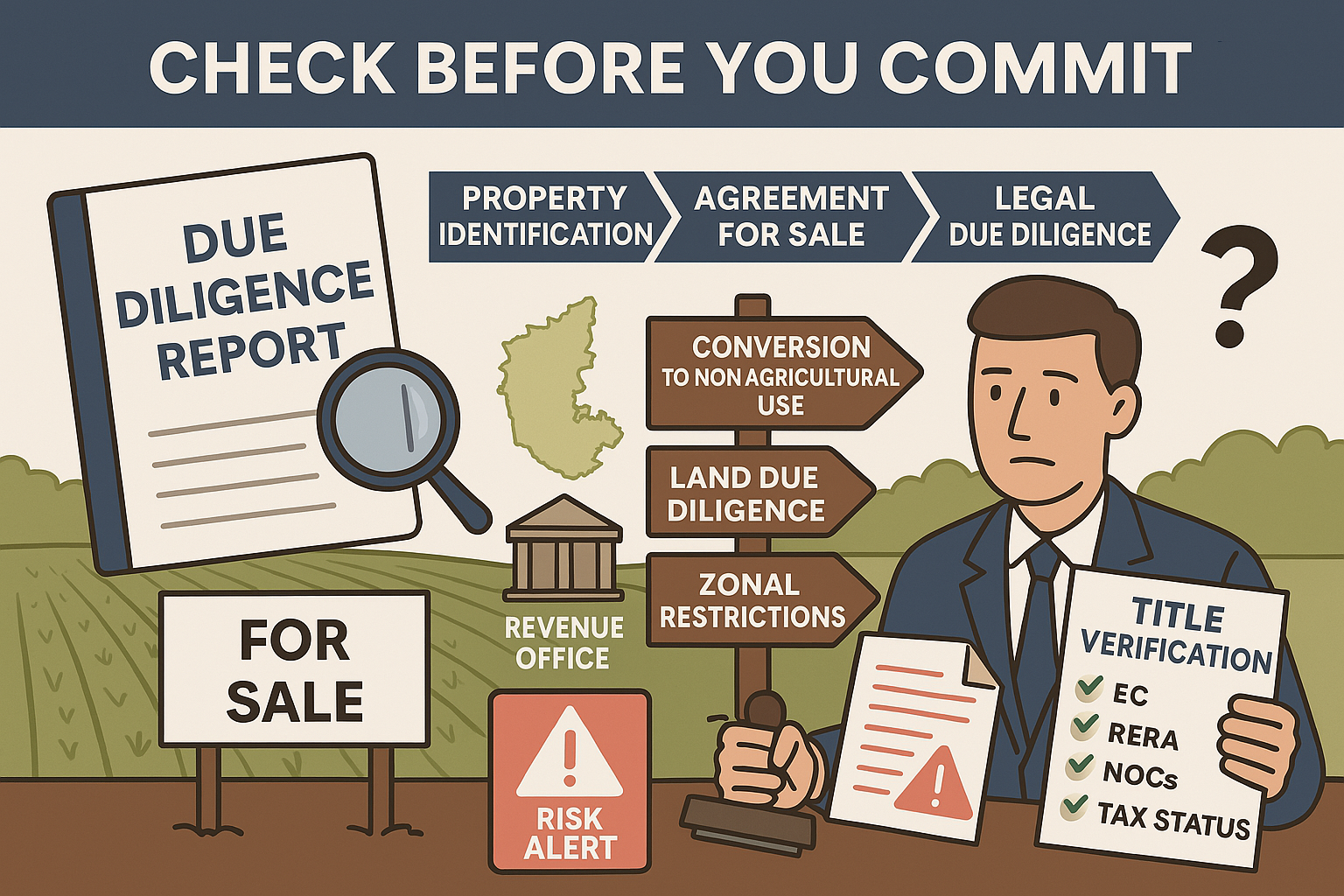Legal Due Diligence in Real Estate: When, Why & How

Legal due diligence is a must-do before buying, selling, leasing, or investing in property. It protects you from fraud, disputes, and hidden liabilities.
When Is It Required?
-
Before buying or selling any property
-
During resale transactions (especially older properties)
-
Before signing Joint Development Agreements (JDA)
-
For commercial leases or builder tie-ups
-
When investing in high-value or disputed assets
Process Overview:
-
Title Verification – Check ownership history and clarity
-
Encumbrance Check – Ensure no loans, liens, or legal claims
-
Document Review – Sale deed, EC, mutation, tax receipts, approvals
-
Physical Inspection – Match layout with sanctioned plans
-
Compliance Check – RERA registration, NOCs, zoning laws
-
Legal Opinion – Lawyer issues a report confirming property is safe to buy
Timeline:
-
Basic due diligence: 3–7 working days
-
Enhanced due diligence (for complex cases): 10–15 days
Key Benefits:
-
Avoids fraud and litigation
-
Ensures clean title and ownership
-
Helps in loan approvals and resale
-
Boosts buyer confidence and negotiation power
- Lakshadweep
- Delhi
- Puducherry
- PROPIINN
- Arunchal Pradesh
- Assam
- Bihar
- Chhattisgarh
- Goa
- Gujarat
- Haryana
- Himachal Pradesh
- Jharkhand
- Karnataka
- Kerala
- Maharashtra
- Madhya Pradesh
- Manipur
- Meghalaya
- Mizoram
- Nagaland
- Odisha
- Punjab
- Rajasthan
- Sikkim
- Tamil Nadu
- Tripura
- Telangana | Andhra pradesh
- Pulse
- Uttar Pradesh
- Uttarakhand
- West Bengal
- Andaman and Nicobar Islands
- Chandigarh
- Dadra and Nagar Haveli and Daman and Diu
- Jammu and Kashmir
- Ladakh



